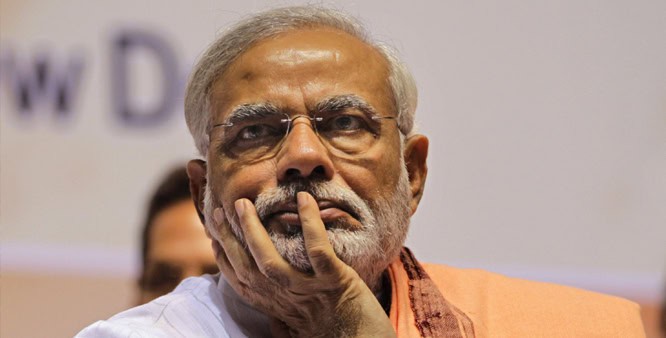New Delhi: The Bharatiya Janata Party has won elections in both Gujarat and Himachal Pradesh. The land slide victory which BJP got in Himachal Assembly elections did not serve a reason for the party to celebrate. The reason for this most probably is the narrow margin which BJP got in Gujarat. This is evident in nervousness of PM Modi when he addressed the victory gathering at the BJP headquarters in the national capital, his usual swagger was missing.
The contest between BJP and Congress was so close that it became a major concern for Modi now. Hardik Patel, Alpesh Thakor and Jignesh Mevani, the three musketeers of Gujarat election, can be a major challenge to Modi in the 2019 Lok Sabha polls on his home turf.

There is also one more fact which worries PM Modi is that his home state has been divided along caste lines and there was sharp Urban-Rural divide evident in the recently elections. Urban Gujarat inclined towards BJP, while the Rural Gujarat towards congress.
The BJP has won 60 seats in rural Gujarat as opposed 69 by the Congress. In the urban areas, on the other hand, the BJP has retained a massive lead winning 45 of 53 seats as against 8 won by the Congress. BJP was able to come to power once again with the help of urban areas.

In 2018, all the four major states will be going to poll- Karnataka, Rajasthan, Madhya Pradesh and Chhattisgarh. These states are predominantly rural. Modi is aware of the fact that BJP’s hold on the rural voters is still not strong. Villagers retain the power to vote in or vote out a party. A rural-urban divide along the Gujarat pattern could spoil BJP’s chances in the four states and effectively end Modi’s 2019 dream.
Though the urban voters saved BJP, the rural voters have sent signals of anger and frustration.
To make his popular image among the rural masses, Modi has been trying to woo the rural electorate since 2015.
Modi belied the expectations of the vocal supporters who had pinned great hopes on him to usher in sweeping modernising and liberalising reforms and create job opportunities. The wait for reforms was long and painful until the Goods and Services Tax was implemented.
Modi has pursued economic agendas that are taken from Indira Gandhi’s socialist-oriented policies. The initial perception was that Modi would radically follow pro-business reforms or reverse Congress’ rural-centric programmes. But that didn’t happen.
Rural voters sliding from BJP is a nightmare for Modi. BJP has deep in roads in urban areas where it has few competitors. However, in rural areas, there is stiff competition from Congress and other regional parties which are BJP’s rivals.

